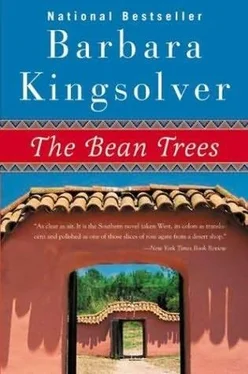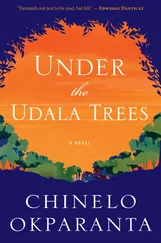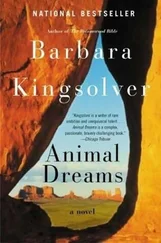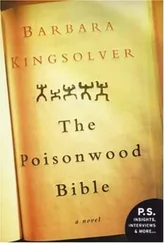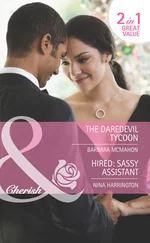“Hi, tomato lady,” Bingo said. “I remember you.”
She flushed. “Are they still forty-five a pound?”
“No, fifty-five. End of the season.”
“That’s okay,” she said. “It’s still a good price.” She looked at every one in the box and picked out six, handing them to the old man one at a time with her free hand. With her other hand she adjusted the baby on her hip taking extra care, as she had been instructed, to support his wobbly head. “Your tomatoes are the first good ones I’ve had since back home.” She felt her heart do something strange when she said “back home.”
Bobby Bingo had skin like a baked potato. A complete vegetable man, Lou Ann thought, though she couldn’t help liking him.
He squinted at her. “You’re not from here? I didn’t think so.” He shook out a wad of odd-sized plastic bags, chose one with red letters on it, and bagged the tomatoes. “Seventy-five,” he said, weighing them up and down in his hand before he put them on the scales. “And an apple for Johnny,” he said, picking out a red apple and shaking it at the baby.
“His name’s Dwayne Ray, and he thanks you very much I’m sure but he don’t have any teeth yet.” Lou Ann laughed. She was embarrassed, but it felt so good to laugh that she was afraid next she would cry.
“That’s good,” Bingo said. “Soon as they get teeth, they start to bite. You know my boy?”
Lou Ann shook her head.
“Sure you do. He’s on TV every night, he sells cars. He’s a real big guy in cars.”
“Sorry,” she said. “I don’t have a TV. My husband took it to his new apartment.” She couldn’t believe, after deceiving her own mother and grandmother for two entire weeks, that she was admitting to a complete stranger on the street that her marriage had failed.
He shook his head. “Don’t worry about it. Makes me sick every time he comes on. Don’t even call himself by his own name-‘Bill Bing’ he says. ‘Come on down to Bill Bing Cadillac,’ he says. ‘Bill Bing has just the thing.’ I always wanted him to be a real big guy, you know. Well, look at him now. He don’t even eat vegetables. If he was here right now he would tell you he don’t know who I am. ‘Get rid of that old truck,’ he says to me. ‘What you need to sell this garbage for? I could buy you a house in Beverly Hills right now,’ he says to me. ‘What?’ I tell him. You crazy? Beverly Hills? Probably they don’t even eat vegetables in Beverly Hills, just Alaska King Crab and bread sticks!’ I tell him. “You want to make me happy, you give me a new Cadillac and I can sell my vegetables out of the trunk.’” Bingo shook his head. ‘You want grapes? Good grapes this week.”
“No, just the tomatoes.” She handed him three quarters.
“Here, take the grapes. Johnny can eat the grapes. Seedless.” He put them in the bag with the tomatoes. “Let me tell you something, tomato lady. Whatever you want the most, it’s going to be the worst thing for you.”
Back at the house she laid down the baby for his nap, then carefully washed the produce and put it in the refrigerator, all the while feeling her mother’s eyes on her hands. “The worst thing for you,” she kept repeating under her breath until she annoyed herself. She moved around the edges of the rooms as though her big mother and demanding grandmother were still there taking up most of the space; the house felt both empty and cramped at the same time, and Lou Ann felt a craving for something she couldn’t put a finger on, maybe some kind of food she had eaten a long time ago. She opened the curtains in the front room to let in the light. The sky was hard and bright, not a blue sky full of water. Strangely enough, it still surprised her sometimes to open that window and not see Kentucky.
She noticed the Coke bottle sitting on the low wooden bureau along with two of Granny Logan’s hairpins. The old-fashioned hairpins gave her a sad, spooky feeling. Once she had found a pair of her father’s work gloves in the tobacco barn, still molded to the curved shape of his hands, long after he was dead.
The bottle had leaked a wet ring on the wood, which Lou Ann tried to wipe up with the hem of her jumper. She was concerned about it staining, since the furniture wasn’t actually hers. The house had come furnished. She thought for a long time about what to do with the bottle and finally set it on the glass shelf of the medicine cabinet in the bathroom.
Later, while she was nursing the baby in the front room, she closed her eyes and tried to remember being baptized in Tug Fork. She could see the child in a white dress, her sunburned arms stiff at the elbows, and could hear her cry out as she went over backwards, but she could not feel that child’s terror as the knees buckled and the green water closed over the face. The strong light from the window took on a watery look behind her closed eyelids and she could see it all perfectly. But couldn’t feel it. She thought of her mother and automatically switched the baby to her other breast.
She was still nursing when Angel came home. She opened her eyes. The late-afternoon light on the mountains made them look pink and flat like a picture postcard.
She heard Angel in the kitchen. He moved around in there for quite a while before he said anything to Lou Ann, and it struck her that his presence was different from the feeling of women filling up the house. He could be there, or not, and it hardly made any difference. Like a bug or a mouse scratching in the cupboards at night-you could get up and chase after it, or just go back to sleep and let it be. This was good, she decided.
When he came into the front room she could hear the jingle of his leg.
“They gone?” he asked behind her.
“Yes.”
“I’m packing my shaving stuff,” he said. Angel had a moustache but shaved the rest of his face often, sometimes twice a day. “Did you see my belt buckle? The silver one with the sheepshank on it?” he asked her.
“The what on it?”
“Sheepshank. It’s a rope tied in a knot.”
“Oh. I wondered what that was on there.”
“So did you see it?”
“No. Not lately, I mean.”
“What about my Toros cap?”
“Is that the blue one?”
‘Yeah.”
‘You left that in Manny Quiroz’s car. Remember?”
“Damn it, Manny moved to San Diego.”
“Well, I can’t help it. That’s what you did with it.”
“Damn.”
He was standing close enough behind her so she could smell the faint, sweet smell of beer on his breath. It was a familiar smell, but today it made Lou Ann wonder about bars and the bottling plant and the other places Angel went every day that she had never seen. She turned her head in time to watch him leave the room, his work shirt rolled up at the elbows and dirty from doing something all day, she did not know exactly what. For a brief instant, no longer than a heartbeat, it felt strange to be living in the same house with this person who was not even related to her.
But of course he’s related. He’s my husband. Was my husband.
“What the hell is this?” he called from the bathroom.
She leaned back in the rocking chair where she sat facing east out the big window. “It’s water from Tug Fork, the crick at home that I was baptized in. Me and I guess practically everybody else in my family. Granny Logan brought it for baptizing Dwayne Ray. Wouldn’t you know she’d bring something weird like that?”
She heard the chugging sound of the water as he poured it down the drain. The baby’s sucking at her felt good, as if he might suck the ache right out of her breast.
Harmonious Space
The Republic Hotel was near the exact spot where the railroad track, which at one time functioned as a kind of artery, punctured Tucson’s old, creaky chest cavity and prepared to enter the complicated auricles and ventricles of the railroad station. In the old days I suppose it would have been bringing the city a fresh load of life, like a blood vessel carrying platelets to circulate through the lungs. Nowadays, if you could even call the railroad an artery of Tucson, you would have to say it was a hardened one.
Читать дальше
